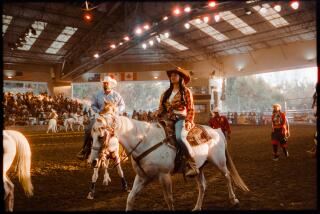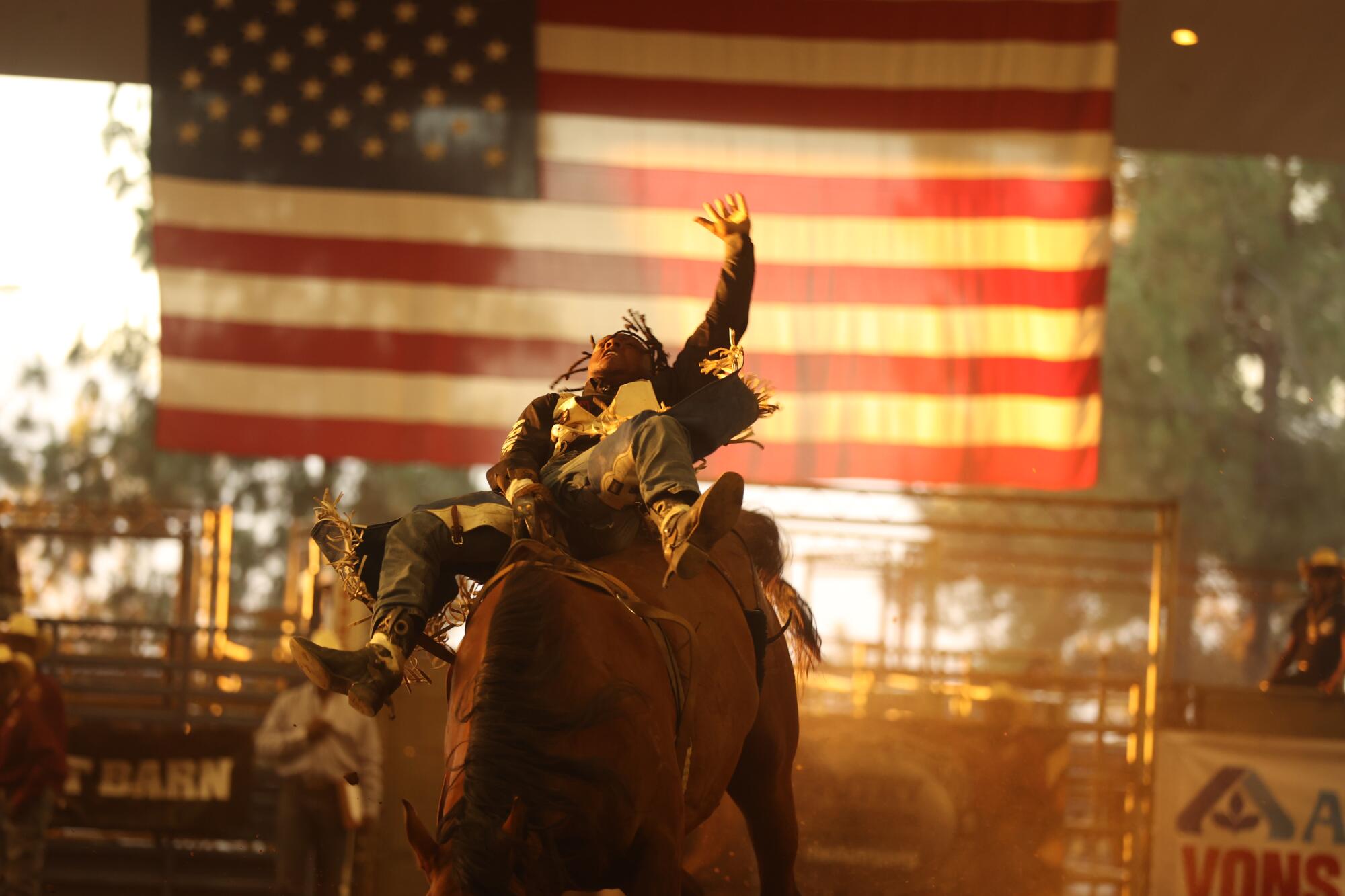
- Share via
As someone from Kentucky, and with a majority of my father’s family being from Houston, I have a strong affinity with Black cowboy culture. It’s ingrained in my family roots.
The Bill Pickett Invitational Rodeo shows great men and women from across this great land coming together as Americans to celebrate the Black rodeo from Oakland to Los Angeles to Forth Worth.
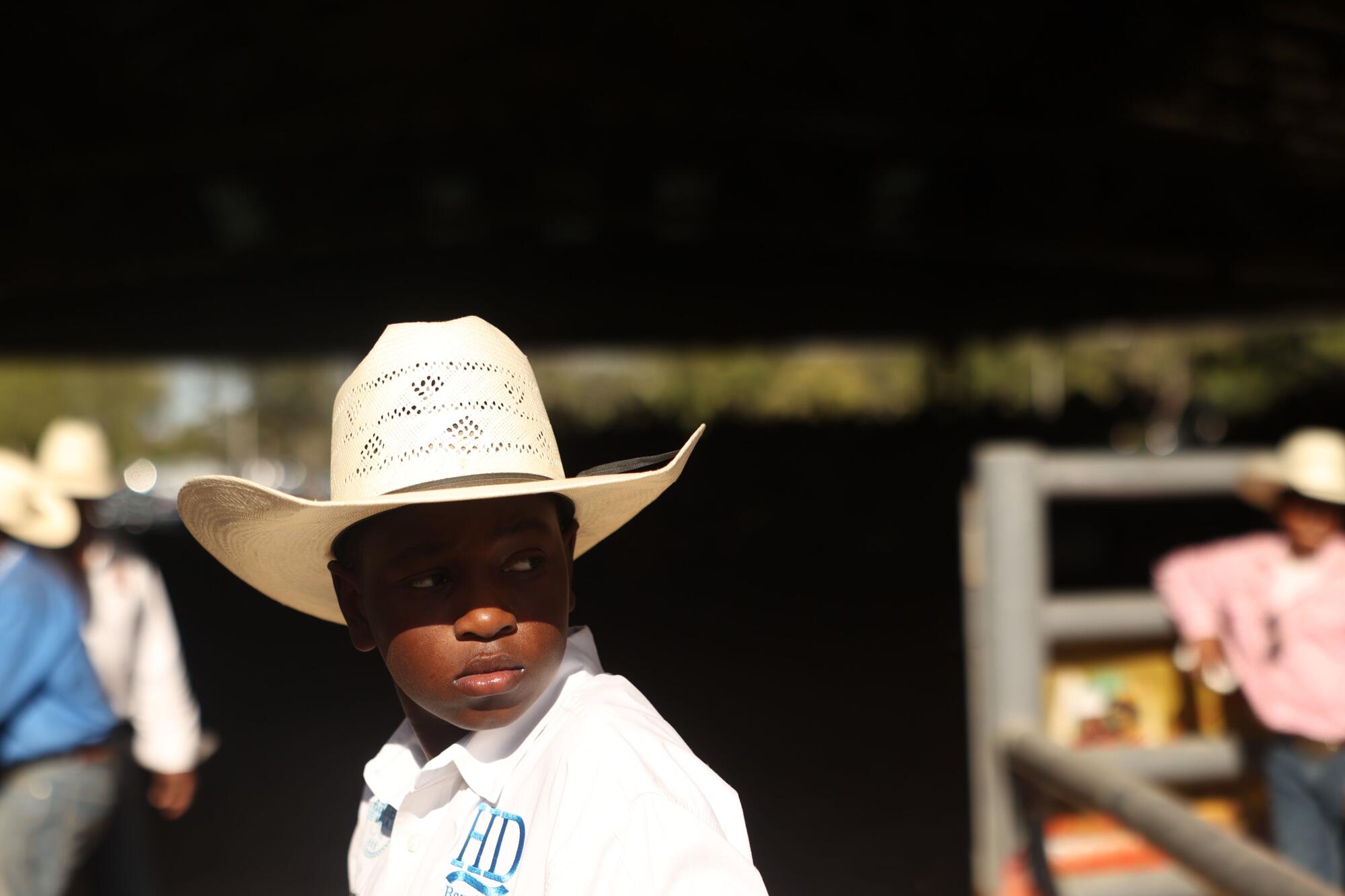
I met a boy named Harold Williams, 12, who instantly caught my attention by how young he was when he first rode a horse. “I was 4 months old,” Harold said with a Southern drawl. Harold — from Prairie View, Texas, home to a historically Black college of the same name my sister currently attends — brings back memories of going to that small town where everyone gets along. Harold is a child prodigy when it comes to being a horseman and cowboy, straddling and doing a tie-down on a cow. A good ol’ Texas kid with spunk.
In March, Texas native Beyoncé released her first country album, “Cowboy Carter,” putting Black cowboy culture in the mainstream more than ever before. This has led to a bigger fan base for Black Western Americana culture. Women attending the rodeo wore sparkling cowgirl hats in homage to Beyoncé.
1
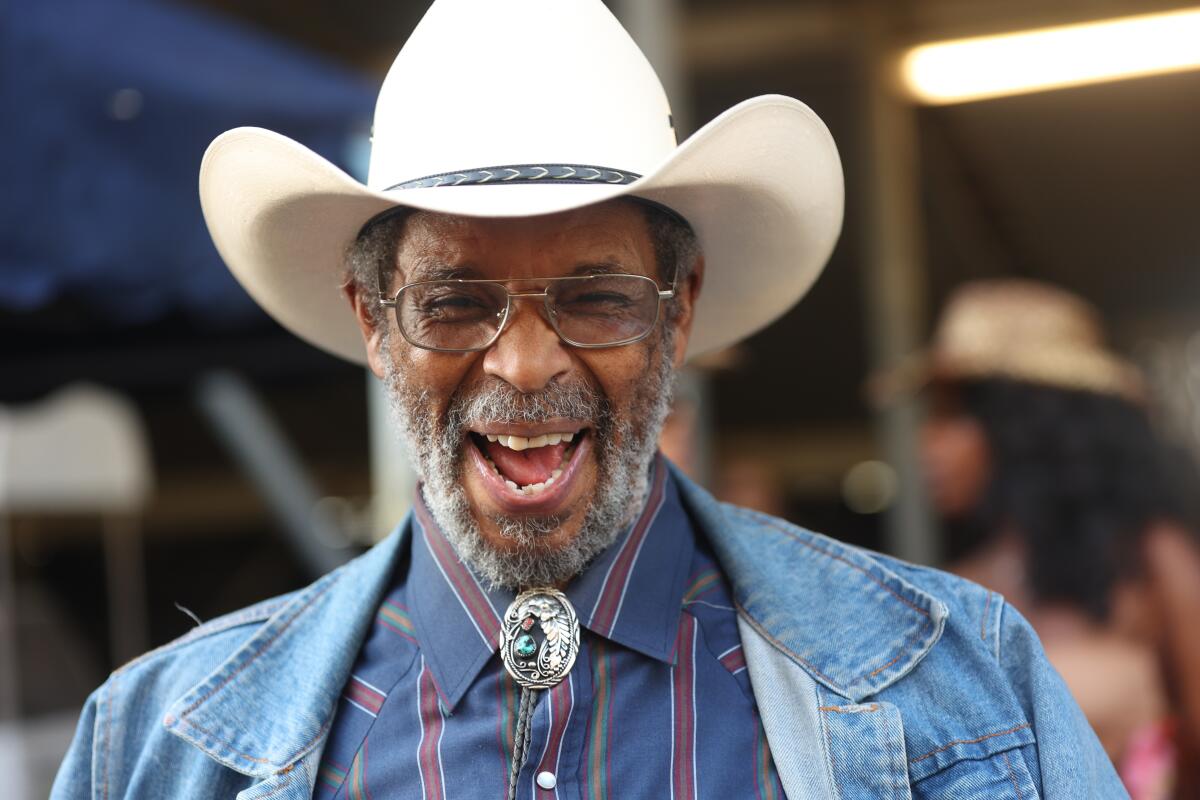
2
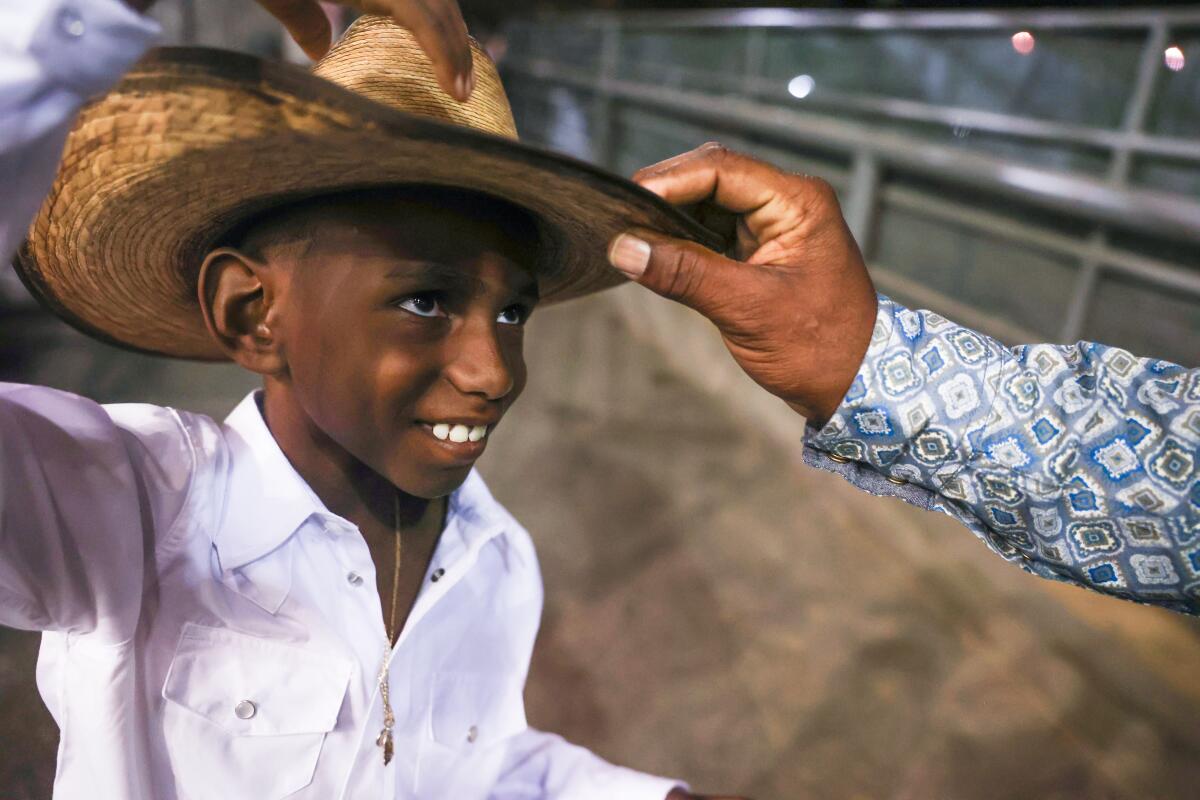
3
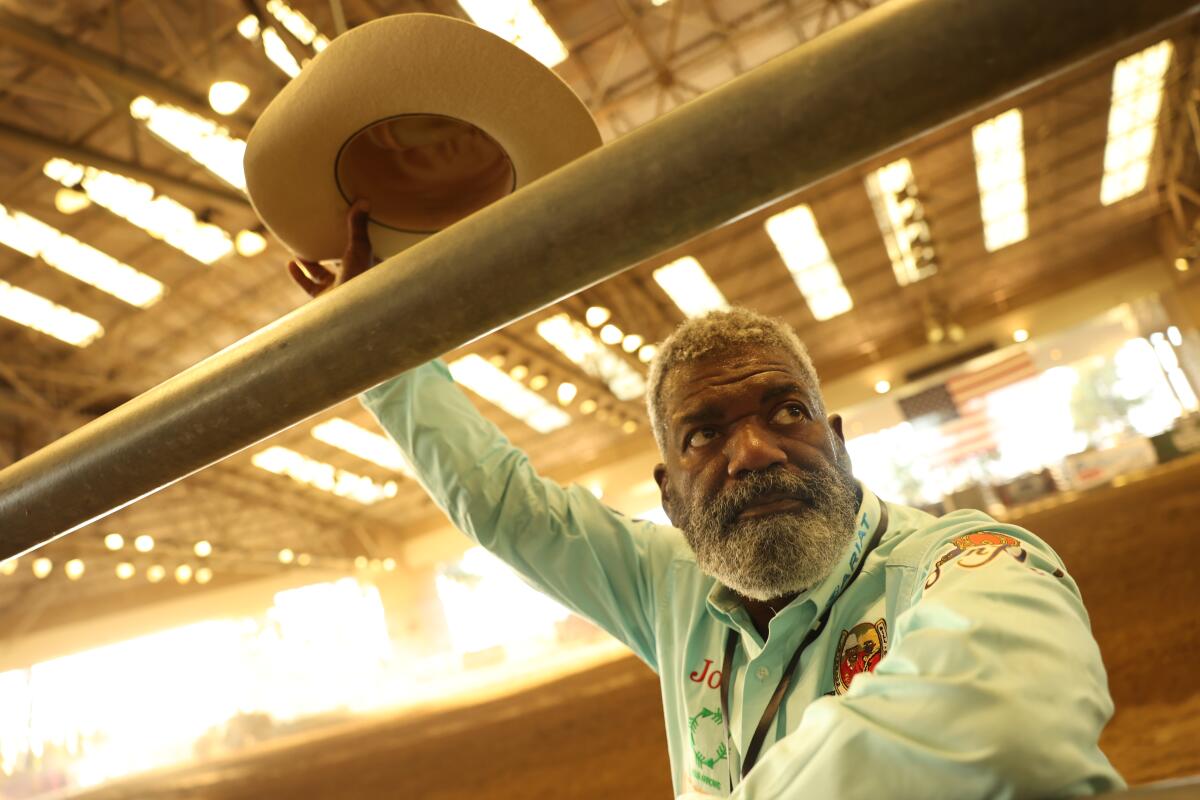
4
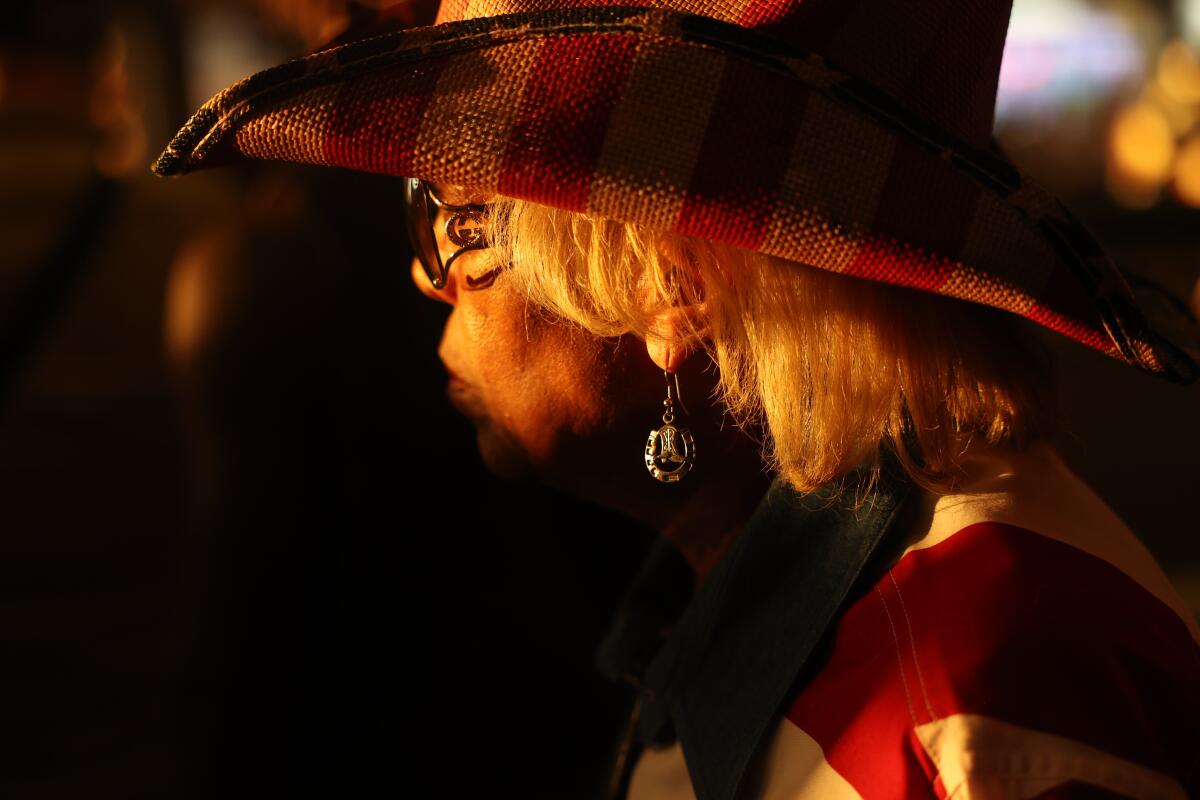
1. A man laughs at the Bill Pickett rodeo on July 20, 2024, in the City of Industry. (Michael Blackshire/Los Angeles Times) 2. Daniel Montgomery, 10, smiles as his father, Daunte, arranges his hat. (Michael Blackshire/Los Angeles Times) 3. Singer Howard Johnson waves his hat before the rodeo begins. (Michael Blackshire/Los Angeles Times) 4. Vanessa Bailey walks to her seat. (Michael Blackshire/Los Angeles Times)
There is tension brewing over a proposed ban on rodeos in Los Angeles, spearheaded by City Councilmember Bob Blumenfield.
Valeria Howard-Cunningham, chief executive of the Bill Pickett Invitational Rodeo, opposes the ban.
“If there is a ban on the rodeo in Los Angeles, then there is only a matter of time before other cities in California enforce the ban. The ban would take away a cultural event important to Black people coming together.”
Matthew Marshall, a cowboy enthusiast from Long Beach, is also against the ban. He knows how a ban would affect their community.
“I grew up loving the Western community. It’s ingrained in our community,” Marshall said.
“You’re not taking away from affluent areas. You are taking away from areas that realistically are going to be hurt. I think that when you’re dealing with rodeo, a lot of people‘s family derives from Texans and derives from the South, and they still have a love for horsemanship and love for rodeo.”
Marshall wants people to know that Rodeo Drive has its origins in a large rodeo that existed in the area and that the word “cowboy” is derived from Black cattle workers. They were called “cowboys,” and white cattle workers were called “cowhands,” he said.
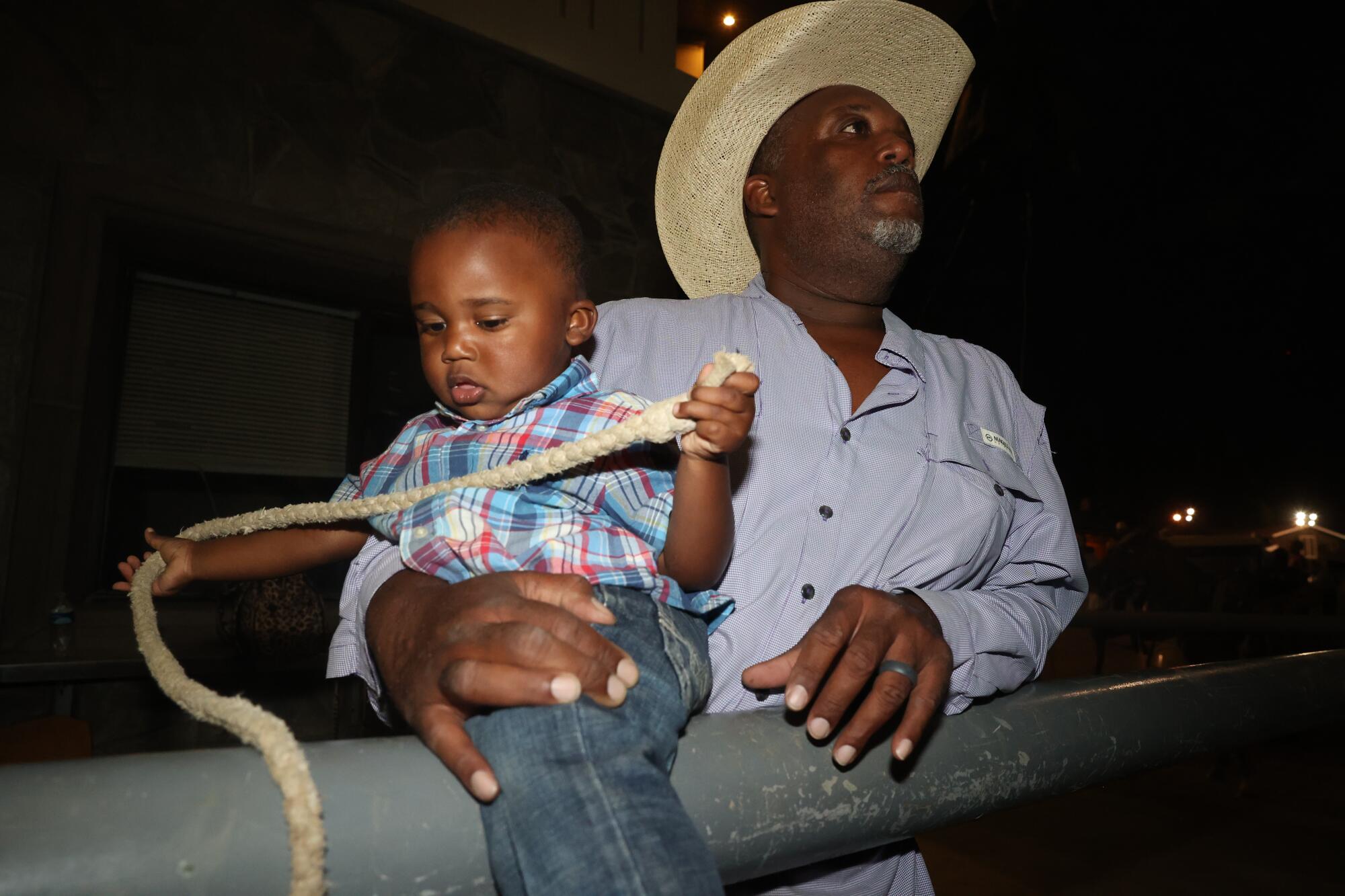
Charles Williams of Oklahoma shows the locals in L.A. a different culture with his Southern hospitality and Southern drawl, saying “Yessir” when acknowledging others and referring to people as “Bub.”
Wiliams is one of many who have made the rodeo a career. That’s the beauty of the Black rodeo. Black and Western pride put in a tight-knit bow. As the late great Charley Pride once said, “It’s the country way.”
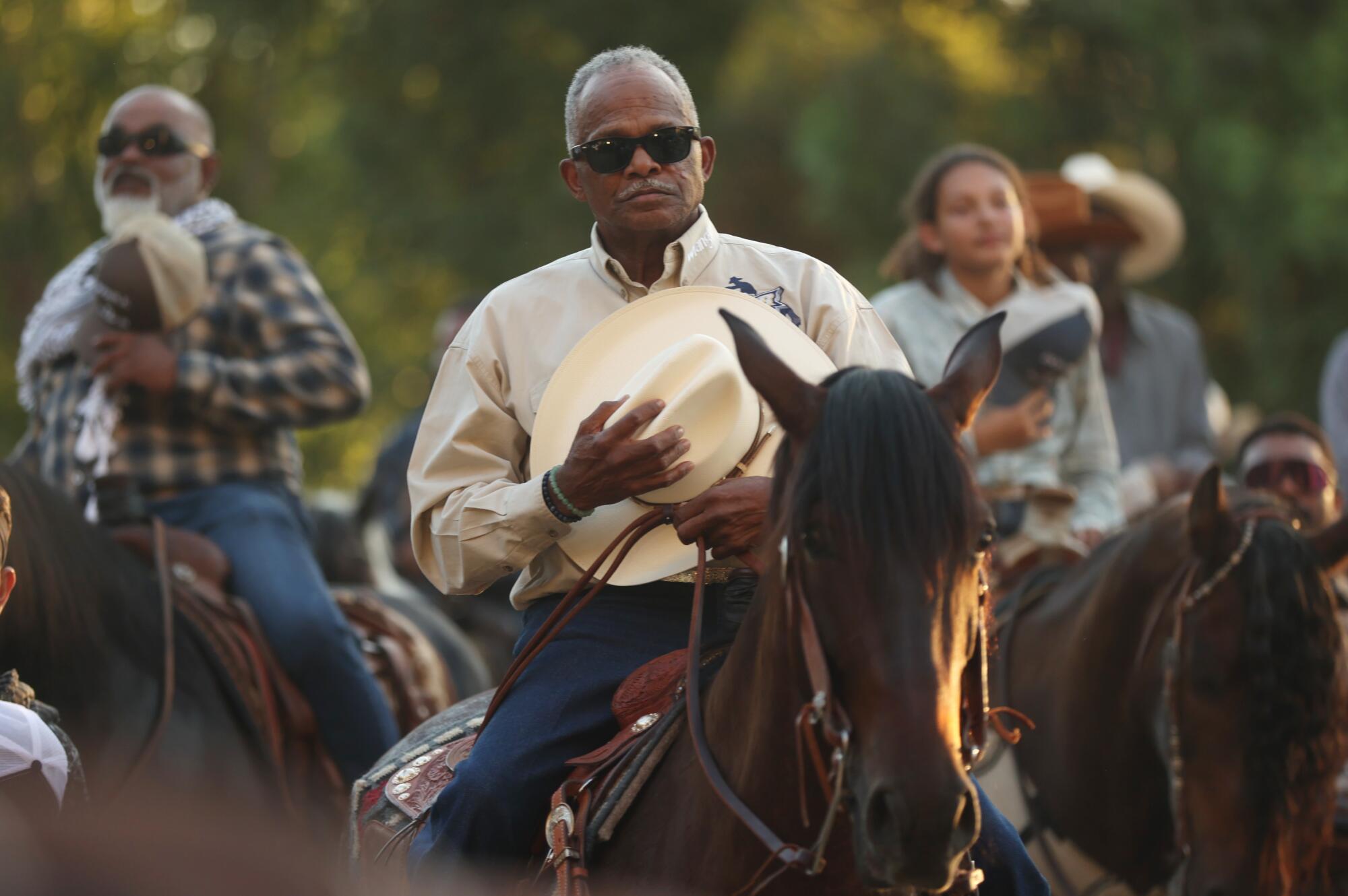
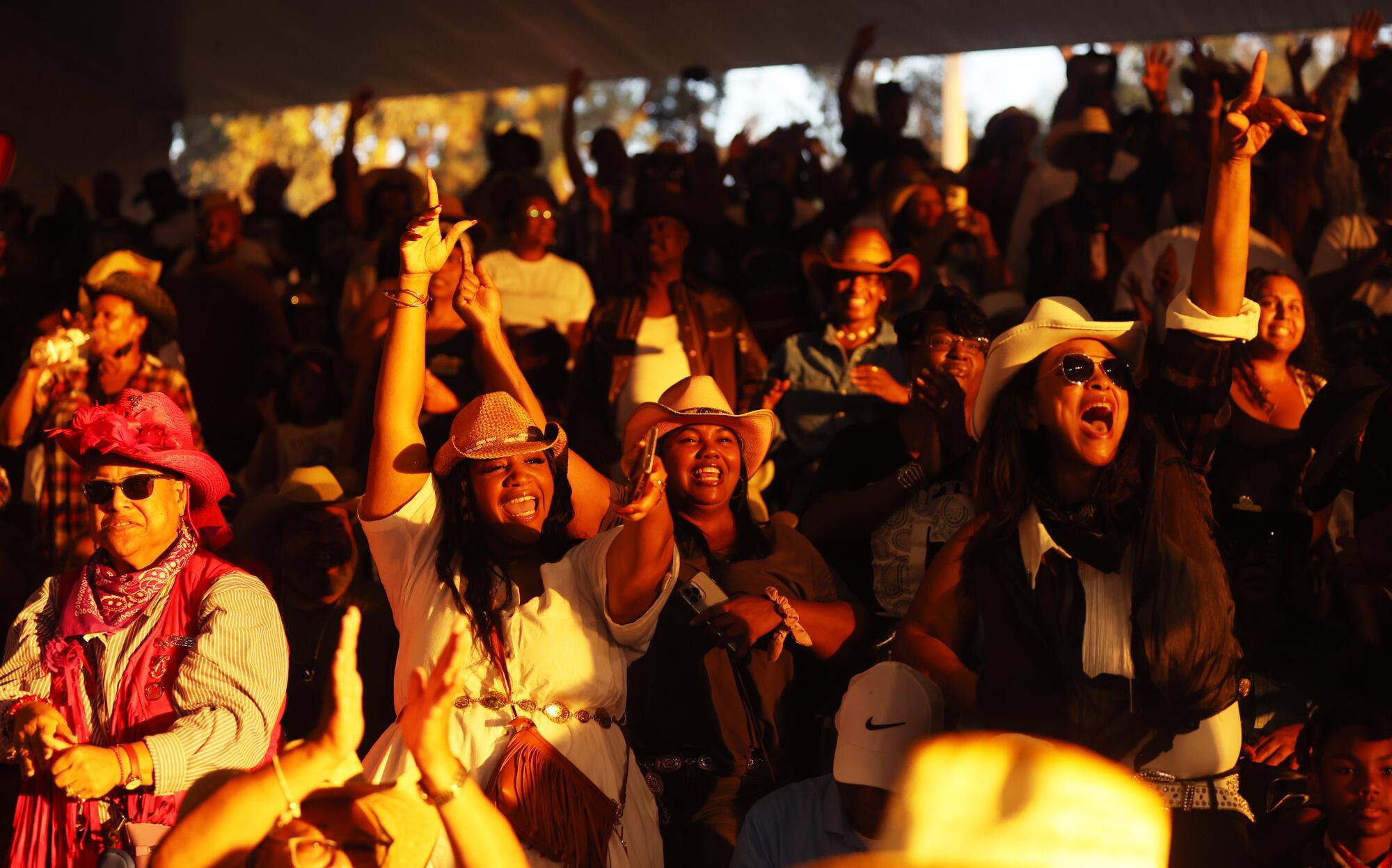
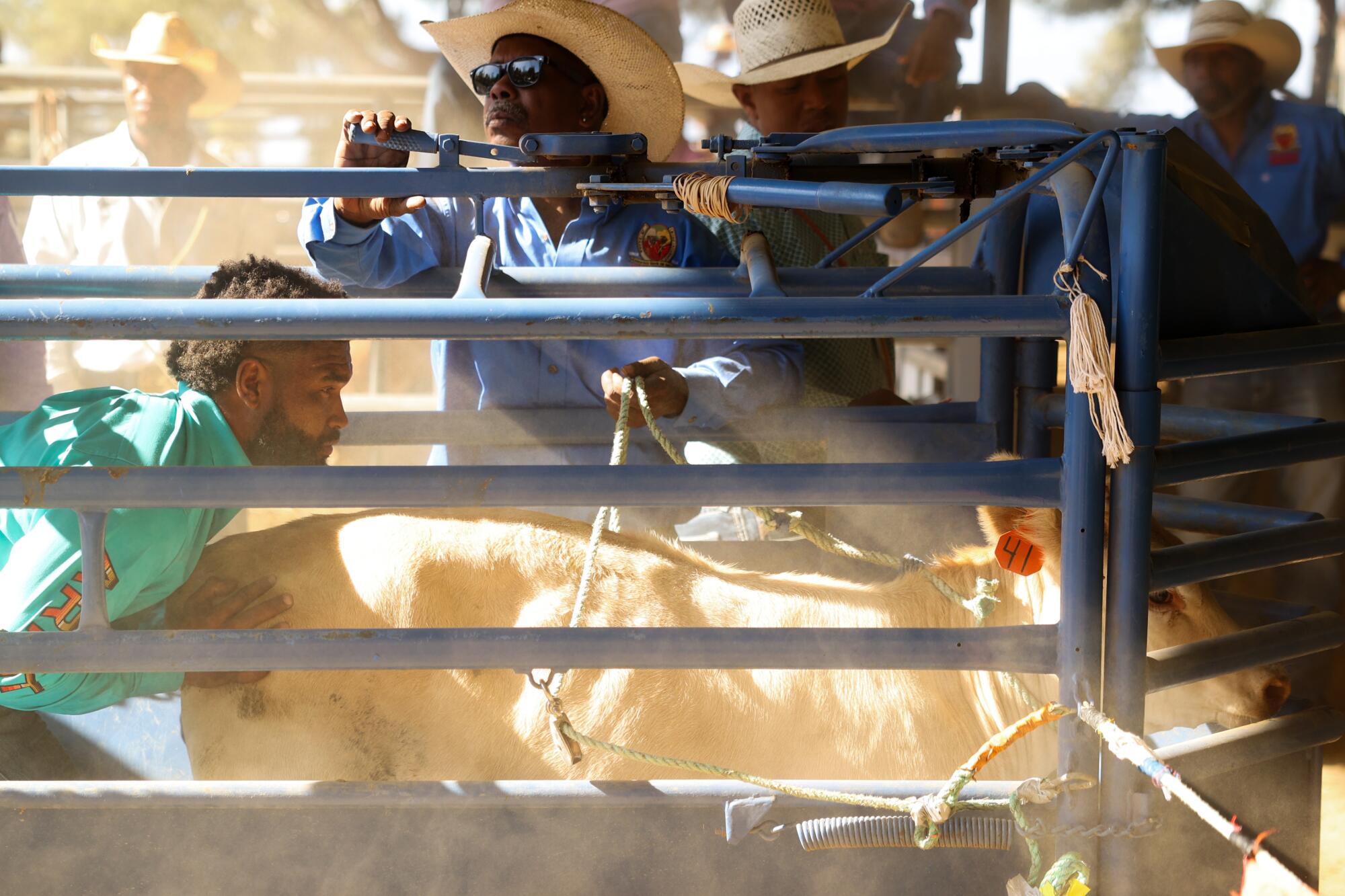
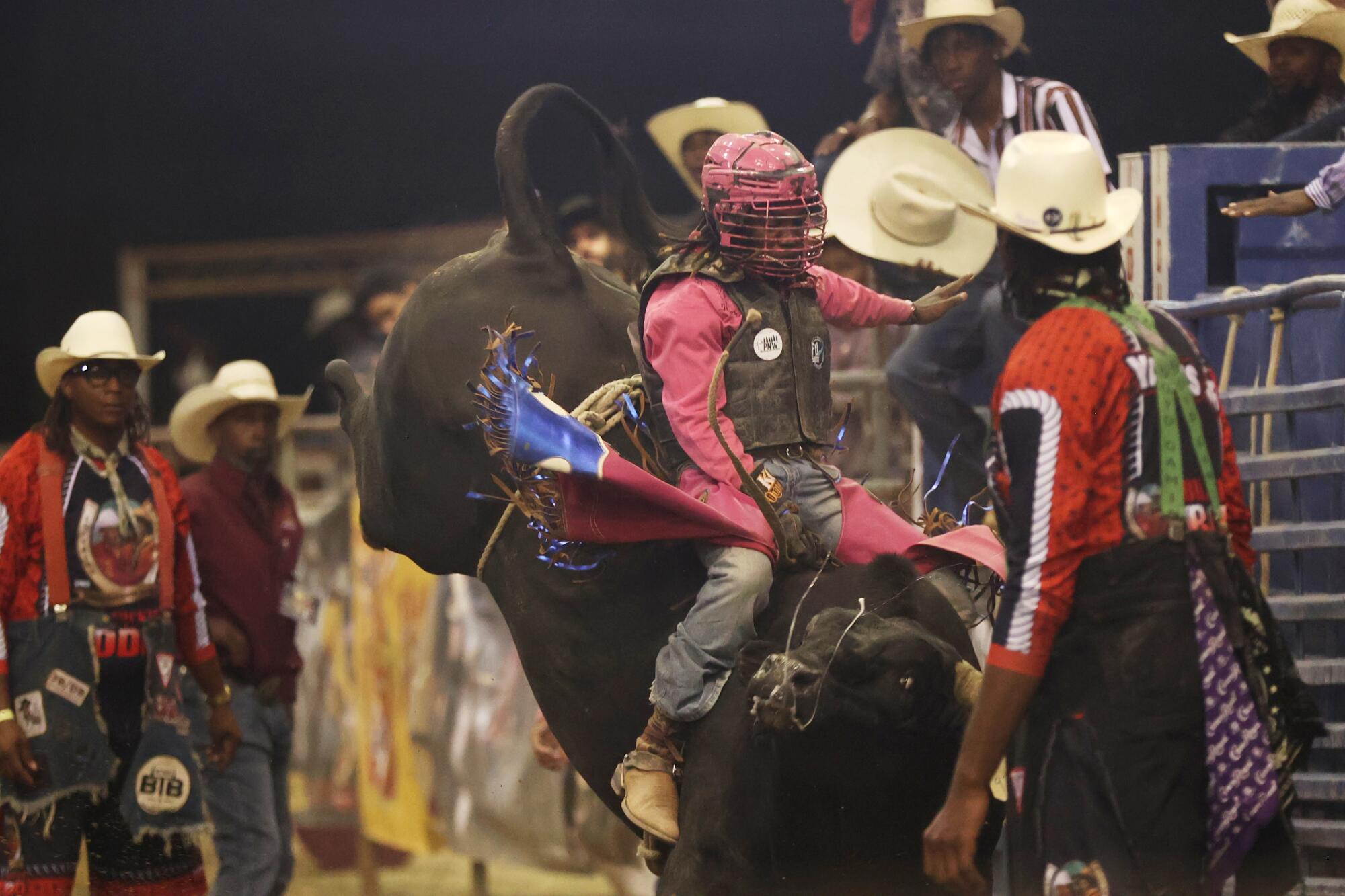
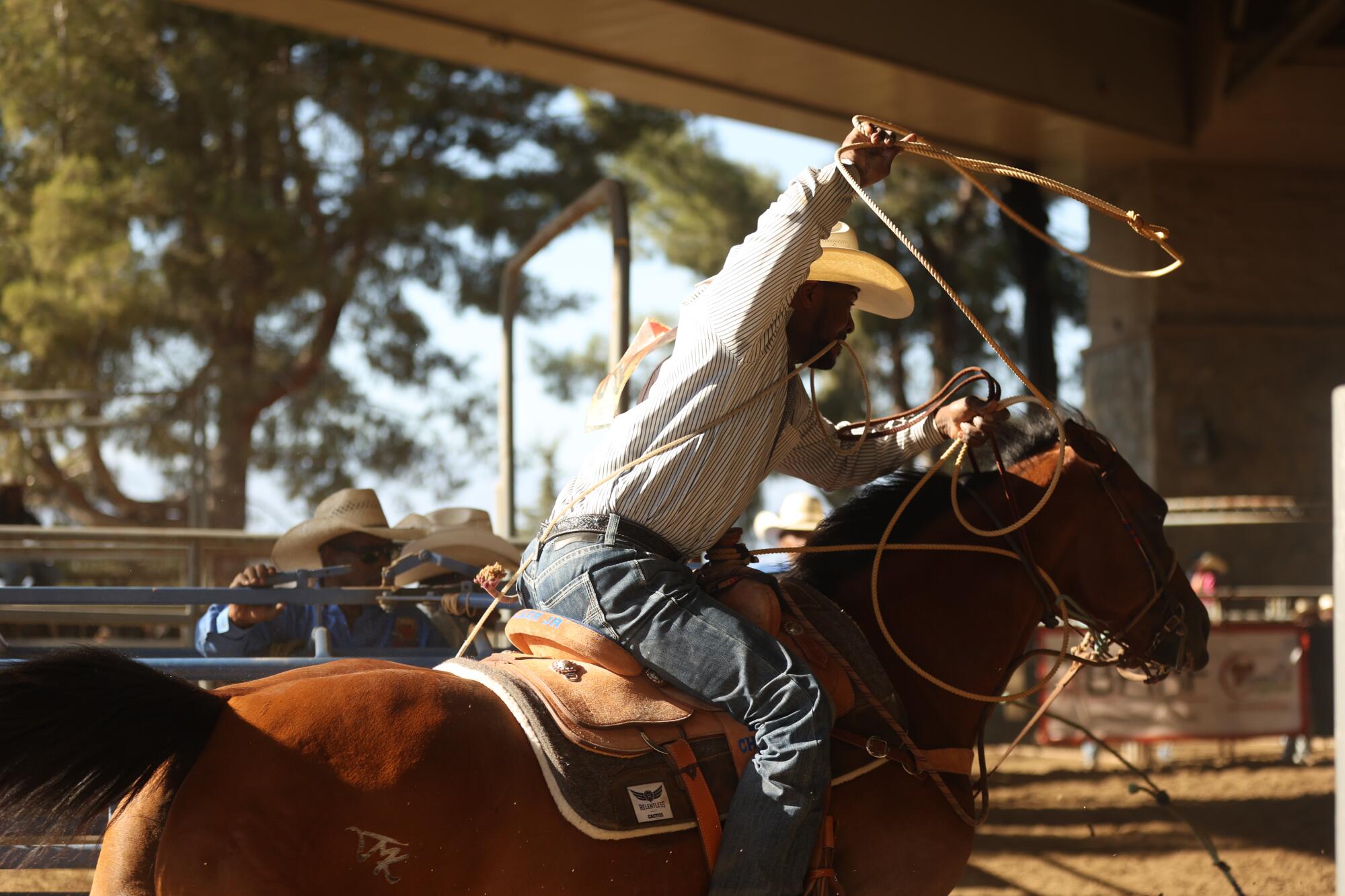
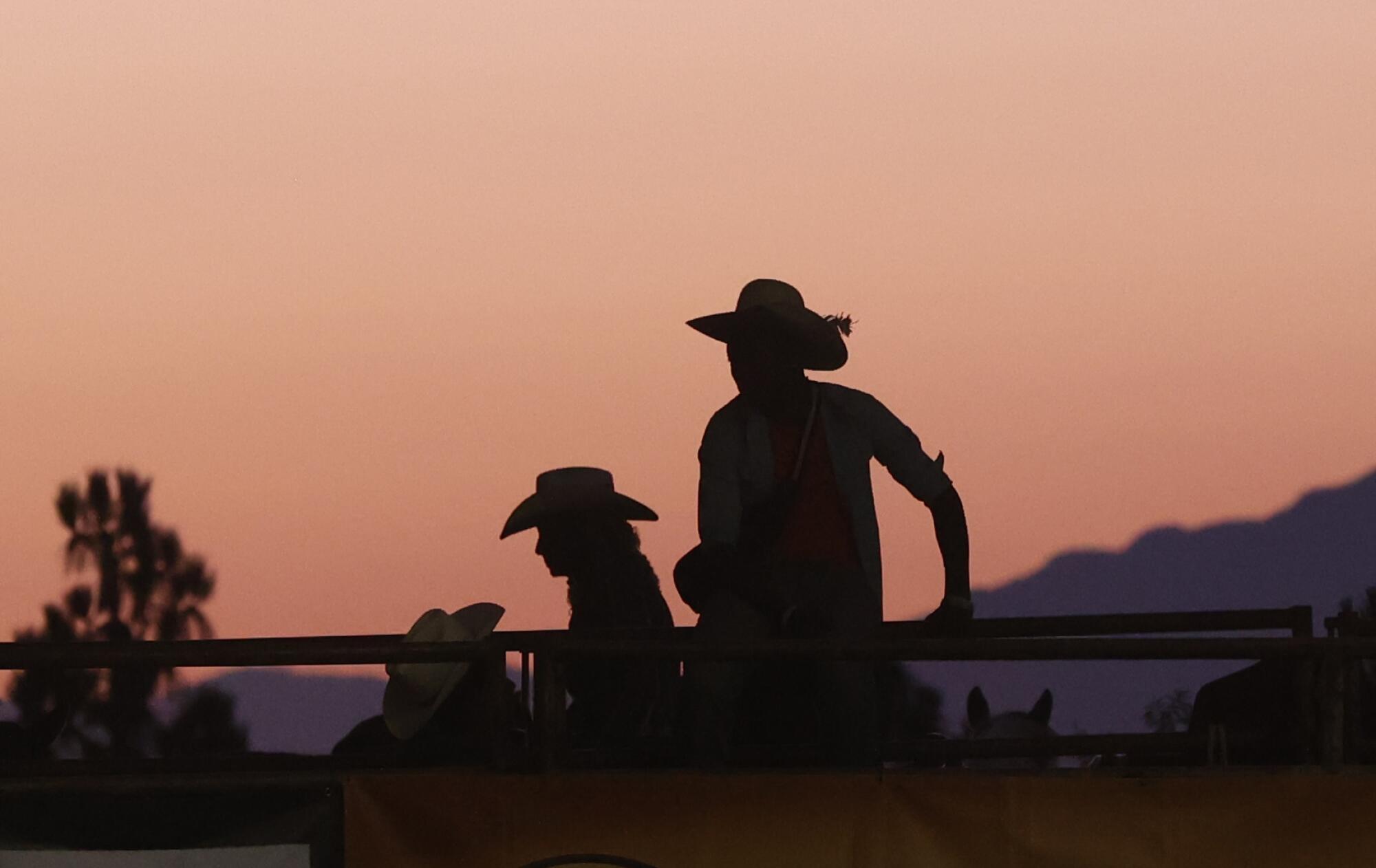
More to Read
Sign up for Essential California
The most important California stories and recommendations in your inbox every morning.
You may occasionally receive promotional content from the Los Angeles Times.


